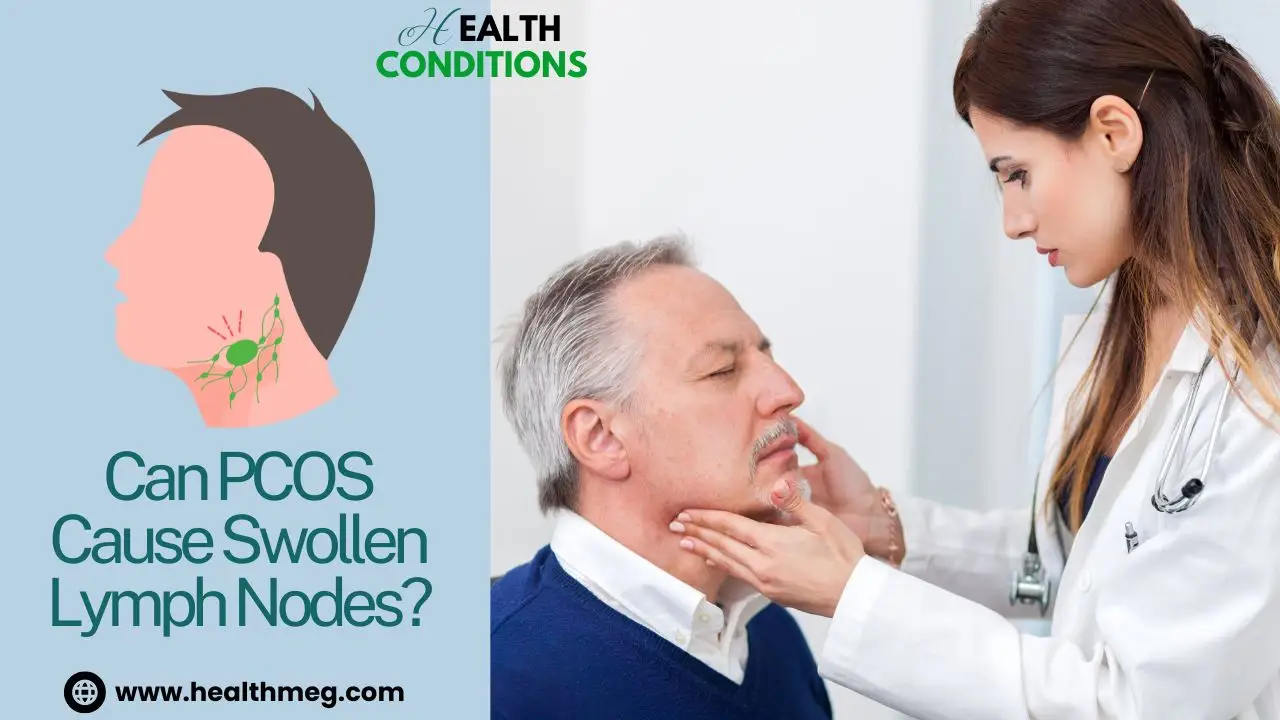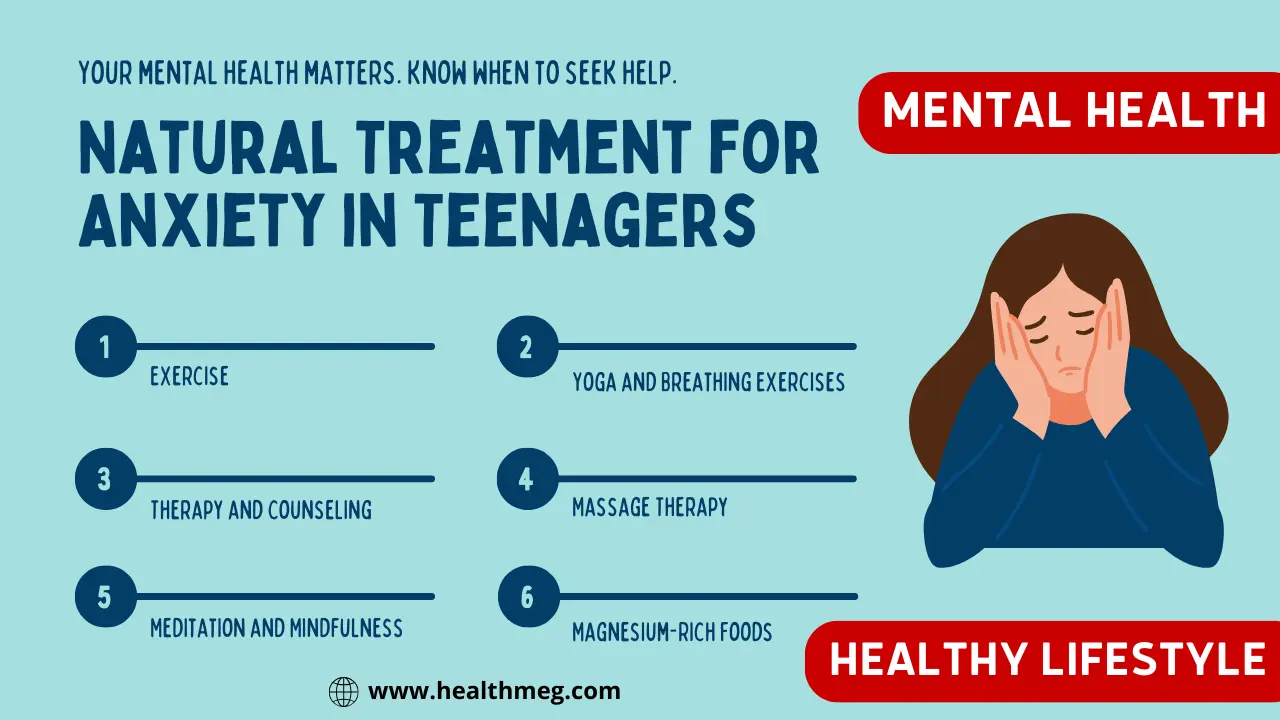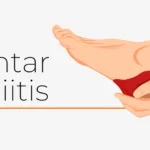Introduction
Polycystic ovary syndrome (PCOS) is a common hormonal disorder that affects up to 15% of women of reproductive age. Characterized by irregular periods, excess androgen levels, and ovarian cysts, PCOS can cause a range of distressing symptoms like infertility, weight gain, acne, and hirsutism. But can PCOS cause swollen lymph nodes? While not definitively proven, emerging research suggests a link between PCOS and lymph node inflammation.
Do read the People Also Ask (FAQs) about this topic.
Key Takeaway
- The relationship between PCOS and swollen lymph nodes is not yet clear, but some early evidence suggests they may be connected through inflammation. More research is needed to determine if PCOS directly causes lymphadenopathy.
- Polycystic ovary syndrome (PCOS) is a common hormonal disorder affecting up to 15% of reproductive-aged women. It causes irregular periods, excess androgen, ovarian cysts, and symptoms like infertility and hirsutism.
- Emerging research suggests a link between PCOS and lymph node inflammation, but the association is not yet definitively proven.
- PCOS involves hormonal imbalances and insulin resistance, which stimulate excess androgen production. This hormonal imbalance underlies many PCOS symptoms.
- Studies show PCOS patients have higher levels of inflammatory markers like CRP, pointing to chronic inflammation as a key feature of PCOS.
- Swollen lymph nodes indicate a heightened immune response and inflammation. While not a typical PCOS symptom, some patients report enlarged neck and underarm nodes.
- Anecdotal evidence on Reddit suggests some women experience lymph node swelling and tenderness due to inflammation from PCOS.
- There is currently a gap in the authoritative medical literature on the link between PCOS and lymphadenopathy. More rigorous research is needed to establish rates and their implications.
- For now, women with PCOS and unexplained swollen nodes should inform their doctor for evaluation. Anti-inflammatory lifestyle measures may help provide relief.
Understanding PCOS
Study claims PCOS is the most prevalent endocrine disorder among women in the reproductive years, with prevalence estimates ranging from 8–13% worldwide. The condition arises from hormonal imbalances involving the ovaries, adrenal glands, and pancreas. Insulin resistance appears intrinsically tied to PCOS pathophysiology. The release of excessive insulin stimulates the ovaries to produce high levels of androgens like testosterone, upsetting the normal estrogen-to-androgen ratio. This hormonal imbalance underlies the common symptoms of PCOS, like menstrual irregularity, cystic acne, male-pattern hair growth, and ovulation issues leading to infertility.
While the exact causes remain unclear, research points to a complex interplay of genetic, metabolic, and environmental factors. About 25% of women diagnosed with PCOS experience elevated prolactin levels, according to one study. Obesity is a prevalent factor, with research indicating 40–80% of PCOS patients are overweight or obese. The metabolic disturbances and inflammation associated with excess weight further exacerbate the syndrome.
PCOS and Inflammation
A growing body of evidence highlights inflammation as a key feature of PCOS. One study published in the Journal of Endocrinological Investigation found CRP levels were higher in overweight women with PCOS compared to healthy controls.
Another study titled “Assessing C reactive protein/albumin ratio as a new biomarker for polycystic ovary syndrome: a case-control study of women from Bahraini medical clinics” published in BMJ Open found that CRP levels are 96% higher in women with PCOS compared with control women.
These findings underscore the role of inflammation in the pathophysiology of PCOS. However, more research is needed to fully understand this relationship. This chronic, low-grade inflammation largely stems from insulin resistance, hormonal imbalances, genetics, and excess adipose tissue. Fat cells secrete inflammatory chemicals called adipokines, which not only foster inflammation but also disrupt ovulation and exacerbate PCOS symptoms. Higher androgen levels may also directly trigger inflammatory pathways
Understanding Swollen Lymph Nodes
Lymph nodes are small immune system glands distributed throughout the body. Linked by lymphatic vessels, these bean-shaped nodes filter lymph fluid and trap viruses, bacteria, and other foreign invaders. This helps prevent infections from spreading. Lymph nodes contain high levels of white blood cells, ready to activate and fight pathogens.
When the immune system detects a threat, lymphocytes and other inflammatory cells proliferate within the nodes closest to the affected area. This triggers the nodes to enlarge or swell as they marshal defences against infection. Node swelling indicates a heightened immune response, whether due to localized infection, systemic infection, or generalized inflammation.
Swollen lymph nodes are usually a temporary sign that the body is fighting infection and not cause for concern. However, persistent enlargement lasting longer than two weeks or nodes over 1cm may require a medical evaluation to determine the cause. Rapid node enlargement, nodes clustered on one side of the body, or swelling accompanied by weight loss or drenching night sweats warrant urgent assessment to rule out serious illness.
Can PCOS cause swollen lymph nodes?
Polycystic Ovary Syndrome (PCOS) is a hormonal disorder common among women of reproductive age. Women with PCOS may have infrequent or prolonged menstrual periods or excess male hormone (androgen) levels. The ovaries may develop numerous small collections of fluid (follicles) and fail to regularly release eggs.
The current understanding of the link between PCOS and swollen lymph nodes is not well-established. While PCOS is associated with a number of symptoms, swollen lymph nodes are not typically listed as a common symptom of the condition.
However, it’s important to note that PCOS has been linked to inflammation. Inflammation occurs when your body’s natural immune system reacts to a foreign substance in an attempt to protect your body from a perceived threat. Several studies have found that people with PCOS are more likely to have elevated levels of C-reactive protein (CRP), a marker for inflammation, compared to those without the condition. This suggests that some form of inflammation is happening in the body.
Swollen lymph nodes often occur as a result of an infection or other illness. Lymph nodes are part of the immune system and contain cells that help your body fight off infections and diseases. Therefore, if a person with PCOS were to have an infection or illness that causes inflammation, it’s possible that their lymph nodes could become swollen.
Personal Experiences and Anecdotal Evidence
In online PCOS communities, some women report enlarged neck or underarm lymph nodes that come and go along with their syndrome. Posts on Reddit indicate lymph node swelling as an issue:
- One individual shared on Reddit that when they don’t manage PCOS super well or when they’re under a particular amount of stress, they tend to get inflammation which can sometimes manifest as allergies, colds, and swollen joints. Their lymph nodes do sometimes get swollen and tender as a result.
- Another person mentioned on Reddit that they have had them (lymph nodes) flare up since they were a kid in their neck only. They wondered if it could be from the inflammation that PCOS can cause.
Please note that these are individual experiences and may not be representative of everyone with PCOS. If you or someone else has PCOS and is experiencing swollen lymph nodes, it’s important to consult with a healthcare provider to determine the cause and appropriate treatment.
Addressing the Gap in Current Content
Despite early clues, a clear gap persists in authoritative medical publications linking PCOS and lymphadenopathy. An extensive literature search finds no large-scale studies, little reference in review articles, and no clear management guidelines for clinicians. This highlights the need for robust research evaluating lymph health in PCOS and establishing rates of associated lymphadenopathy.
Understanding whether swollen lymph nodes occur more frequently with PCOS has several implications. It would aid diagnosis and shed light on underlying drivers like inflammation. It may reveal the need to monitor lymph health as part of holistic PCOS care. Results could inform treatment approaches and prevention strategies. Ultimately, rigorous studies are required to determine if swollen lymph nodes belong on the list of common PCOS manifestations.
Conclusion
While an association seems biologically plausible, the current body of evidence remains inadequate to conclude PCOS directly causes swollen lymph nodes. However, women with PCOS and unexplained lymph node swelling should inform their doctor, who may recommend tests or imaging to uncover potential causes. Tracking nodes and symptom flares may reveal contributory lifestyle and dietary factors. As always, adopting anti-inflammatory lifestyle measures provides adjunctive relief for those with chronic lymphadenopathy.
Addressing the knowledge gap through methodical research could unlock a better understanding of PCOS pathology and optimal management. In the interim, increased awareness and diligent monitoring of lymph health empower those with PCOS to be proactive about their well-being. While awaiting more definitive answers, patients and providers can work together to navigate this common yet complex syndrome.
People Also Ask (FAQs)
Q) Can PCOS cause swollen lymph nodes in the neck?
A) There is some limited evidence that PCOS may be associated with swollen lymph nodes in the neck region. However, the link is not fully established. PCOS involves hormonal imbalances that can trigger inflammation, which may potentially lead to enlarged neck lymph nodes in some women. However, more research is needed to determine if PCOS directly causes neck lymphadenopathy.
Q) Can PCOS cause swollen lymph nodes in the groin?
A) It is possible but not proven that PCOS could potentially cause swollen groin lymph nodes (inguinal lymphadenopathy) in some cases. This may be related to the inflammation associated with PCOS. However, there is currently minimal medical literature examining a direct association between PCOS and swollen groin lymph nodes. More rigorous study is required to confirm if PCOS can contribute to inguinal lymphadenopathy.
Q) Can hormonal changes cause lymph nodes to swell?
A) Hormonal changes may potentially cause lymph nodes to swell, as hormones regulate immune function. Fluctuating estrogen levels during the menstrual cycle can trigger mild inflammation and lymph node enlargement in some women. Significant hormonal shifts during pregnancy and menopause may also impact lymph nodes. However, persistent, unexplained lymphadenopathy warrants medical evaluation.
Q) Can an ovarian cyst cause swollen lymph nodes?
A) In most cases, an ovarian cyst alone is unlikely to directly cause swollen lymph nodes. However, a large, ruptured, or inflamed ovarian cyst could potentially trigger inflammation that leads to lymph node swelling. The cyst would need to be large enough to stimulate an immune response. Any severe pelvic pain, fever, or rapid swelling should be evaluated promptly by a doctor.
Q) Is swelling a symptom of PCOS?
A) Generalized swelling and bloating are not considered common symptoms of PCOS. However, some women with PCOS do report swelling in their hands, feet, ankles and even lymph nodes. The Links between PCOS, inflammation, and swelling are not well understood. Those experiencing unexplained, persistent swelling should see their doctor.
Q) What are the warning signs of PCOS?
A) Key warning signs of PCOS include irregular periods, excess body hair growth, acne flare-ups, scalp hair loss, difficulty losing weight, darkening of skin, skin tags, pelvic pain, and fertility issues. Multiple cysts on the ovaries may be seen on ultrasound. Blood tests can reveal elevated male hormones.
Q) Why do I suddenly have swollen lymph nodes?
A) Sudden swollen lymph nodes can signal an active immune response, either due to localized infection near the nodes or a broader systemic infection. Other causes include inflammation from autoimmune disorders, certain cancers like lymphoma, or medications. Persistent enlarged nodes for over 2 weeks warrant medical evaluation.
Q) Why are my lymph nodes so swollen for no reason?
A) Some potential reasons lymph nodes swell for no apparent reason include hidden infections like viral illnesses, autoimmune disorders like lupus, or early-stage cancers that have not presented other symptoms. Food allergies, skin conditions, and some drugs may also cause unexplained lymphadenopathy. See a doctor to determine the cause.
Q) How do I know if my lymph nodes are swollen or cysts?
A) Swollen lymph nodes feel like soft, tender lumps under the skin, often movable, and may get smaller or larger. Lymph node cysts are fluid-filled sacs around nodes that feel smooth, and firm and remain unchanged in size. Cysts require drainage. Cancerous nodes are usually hard, immobile, and continue growing. See a doctor for an exam.
Q) Can ovulation cause swollen lymph nodes?
A) Ovulation itself is unlikely to directly swell lymph nodes. However, some women experience mild inflammation during ovulation, which could theoretically cause mild node swelling. Any severe or prolonged lymphadenopathy associated with ovulation warrants medical assessment.












